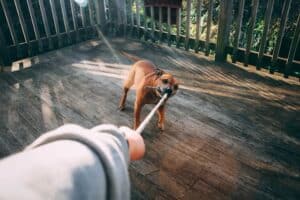
Animals can be endearing, comforting, and therapeutic. From guide dogs for children on the autism spectrum to snuggly cats supporting isolated older adults, animals have proved indispensable for human civilization. Wild animals, in turn, expose us to the wonders of biodiversity and encourage initiatives for sustainable growth.
That said, sometimes, the equation between animals and humans becomes bitter. It could be an unprovoked, random act of hostility from a pet or an out-of-the-blue collision with a large wild beast. Either way, you may sustain injuries and be left embittered from the experience. The impact may be severe for small children, who may feel traumatized by the episode for a long time.
Understanding how to ascertain legal accountability for such incidents can help you regain control and assurance. It can also help you find assistance to recover from injuries and other financial or medical repercussions.
Injuries From Pet Animals
Dogs are our best friends, or cats, as feline enthusiasts might say. Even so, our beloved pets may occasionally become hostile toward us or other humans.
The CDC reports that fatal dog attacks have more than doubled in recent years, growing from around 40 a year to over 100 after the COVID-19 pandemic. Some owners, apparently, are taking inadequate measures to understand their pets’ behavior and keep them feeling safe and stress-free. Dogs that have come in contact with potentially rabid animals, like raccoons, pose a danger on a much larger scale.
The standard dog bite law in the US holds the owners responsible for such incidents. Their violation of city leash laws or negligence around a violent pet could have led to the incident. It shouldn’t matter whether the bite happened on their property or off it.
According to Tim Mazzela, California law allows the injured to claim compensation from the dog owner’s insurance provider (homeowners or renters).
However, what happens if they don’t have insurance coverage? In such cases, professional legal counsel can help you develop a case involving other possible culprits. Based on the proceedings, you should be able to find support for medical expenses and financial losses stemming from the episode.
Legislation may also change for incidents involving injuries to other animals because of misbehaving dogs. A recent unsettling incident in New York saw a Chihuahua brutally attacked by pitbulls. It has started a conversation on creating criminal offenses for careless dog owners who fail to train their pets.
How About Bites From Other Pets?
As a rule of thumb, standard laws should apply to any injuries caused by other pets. However, these animals must be registered and legal. That rules out tarantulas—exotic pets that popular media has sort of venerated. Owning illegal pets can expose owners to entirely different and more complex charges.
Note that even with dogs, the breed may become a point of discussion during legal proceedings. Time and again, some people have proposed breed-specific legislation. However, the American Veterinary Medical Foundation points out the limitations of this approach, particularly for mixed-breed dogs.
Is the One Bite Law Valid?
While recovering from a dog bite, the last thing you want to hear is someone telling you, “It was only the first time my dog bit anyone.”
Vice reports that Canadian civil law is liberal toward giving dogs one warning. Only after are they called dangerous. It means that owners can be held responsible for negligence only if their dog has bitten someone previously.
Some US states also follow a similar guideline. Others, like Connecticut, impose liability from the very first bite.
Therefore, your location may affect the compensation you receive. You should also assess whether you had a role in abetting the episode, such as ignoring warnings or provoking the animal in any way. Michigan dog bite lawyer, Thomas Stroble, adds, “Even if you’re unsure of the law, liability, or having a case, I encourage dog bite victims to reach out to a local injury attorney for guidance.”
Animals Without “Owners”
Every year in the US, many people face road accidents due to an errant deer abruptly crossing a road. Smart Growth America reports that 1-2 million collisions occur annually between vehicles and large wild animals. Besides fatalities and injuries, they also cause considerable property damage.
In fact, deer, no matter how timid and well-meaning, have become unwittingly responsible for accidents across the world. The Irish News reports a 42% increase in deer-related car accidents over three years. Many incidents happen during the rutting season. Apart from deer, drivers may also encounter elk or mountain lions on highways—a clear consequence of the climate change crisis.
So, who takes legal accountability in such cases? What happens if the road has clear warning signage related to deer sightings, but the driver ignores it?
In most circumstances, such accidents are considered a no-fault liability, since deer are wild animals. Usually, auto insurance covers such accidents.
However, things may change if you were driving under the influence or past the speed limit. These circumstances can affect your insurance claim and also make you susceptible to a penalty.
One can hope that increasing awareness of protecting biodiversity and being responsible toward animals will reduce such disturbing incidents. It is fair to assume that animals want to live in harmony with us, often suffering even worse after such accidents.
As human beings, we should know what action to take to manage unexpected encounters with animals and access the help we are entitled to.